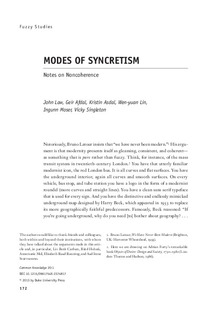| dc.description.abstract | Many European societies are confronted by critical challenges. Traditional forms of authority are contested. Political authority has been displaced, scientific and medical expertise is questioned, and religious authority returns. There are ethnic and religious differences and conflicts, debates about migration and about the boundaries of the European community, its values and heritage.
This article explores and characterizes what happens when authorities meet and negotiate their difference. To do this we draw on insights, analytical resources, and approaches from studies of Science, Technology and Society (STS). This discipline has developed powerful tools for exploring how practices generate different forms of knowledge, expertise and authority in specialist locations including laboratories, hospitals and organisations. However, STS remains underdeveloped in two crucial respects. First, the extent to which it has explored differences between major forms of authority is limited. This is a significant omission in an era of contested authority when, for instance, faith in science or in biomedicine is being challenged by the rise of new forms of religious authority or alternative therapies. Second, its concern with normativities and values involved in the enactment of authority has been similarly restricted. This, too, is a significant STS failing in an era when ethnic and religious diversity, ageing populations with the increasing need for chronic and end of life care, the role of the state and of parliamentary politics and authority, and state-religion relations are all crucial issues of controversy.
This is the context for the article. Since authority is chronically contested and negotiated, the core problem addressed is to understand how such differences and contestations unfold in practice. In particular it analyzes how religion is involved, how religion interacts with other authorities and how these interactions constitute the enactment and development of normativity in society. The article investigates the forms of competence, knowledge and values authorities are committed to. It explores how such encounters are structured. It explores how they avoid turning those differences into overt conflicts. It explores what happens when conflict is not averted. It explores how conflicts are then rendered manageable. It explores and characterizes the skills involved, and examines whether the encounters reveal characteristic patterns or styles. | |
